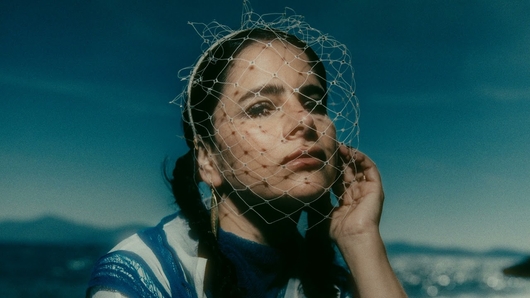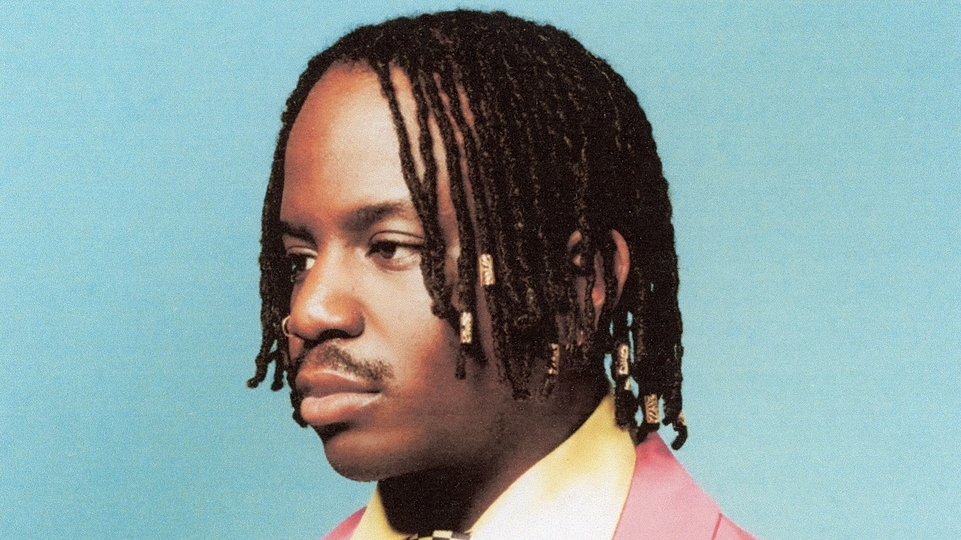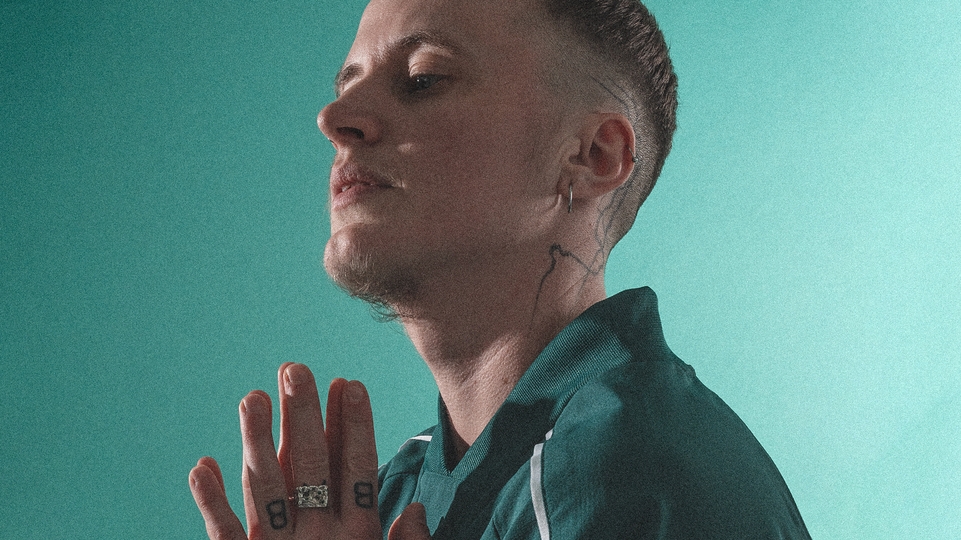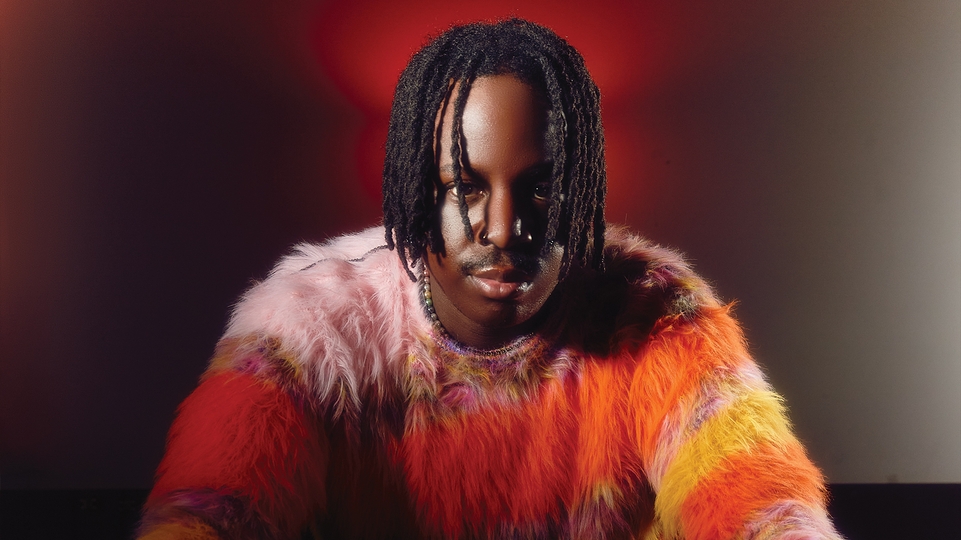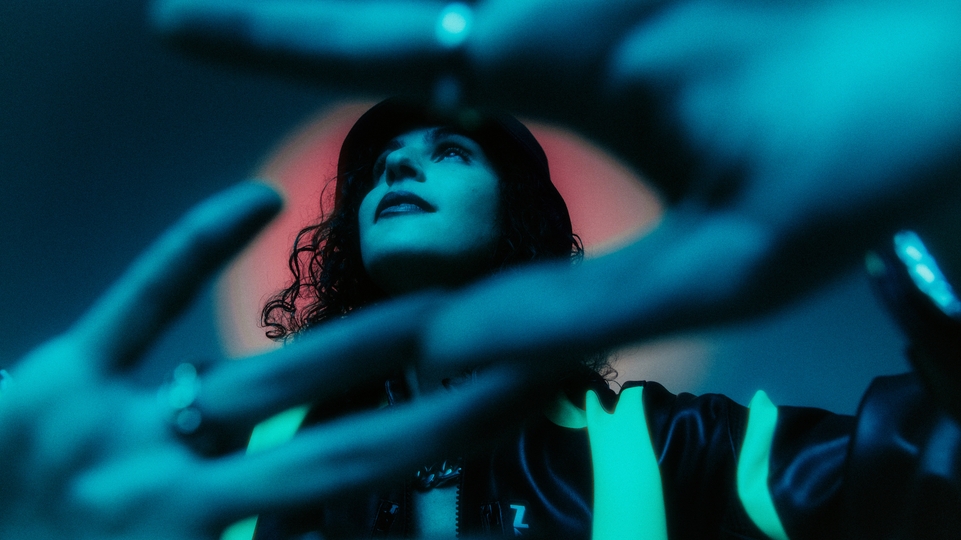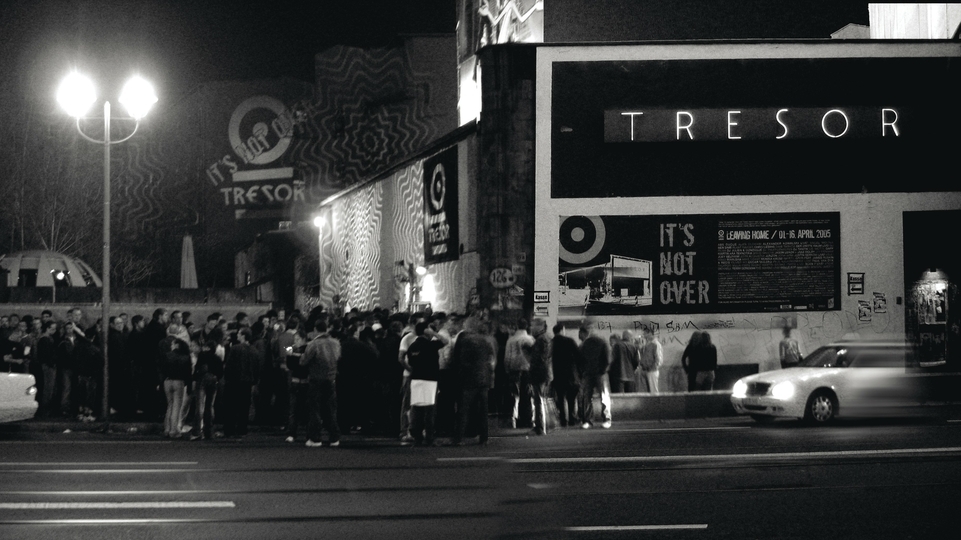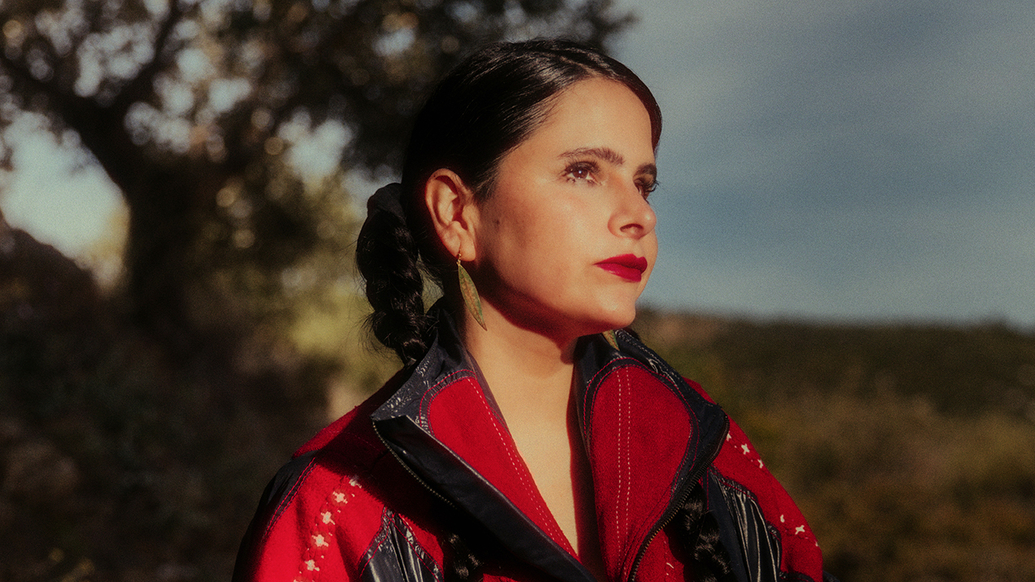
Sofia Kourtesis: pursuit of happiness
Ever since her earliest releases on Studio Barnhus, Sofia Kourtesis has been zeroing in on her core sound: a pulsing, fluttering style of house that seamlessly blends joyous euphoria with introspective melancholy. Here, she shares the journey of personal growth, familial love and vulnerability that led to the creation of her debut, 'Madres', on Ninja Tune
Sitting at home in Berlin, Sofia Kourtesis is speaking with DJ Mag about her debut album, ‘Madres’, but as conversation wanders, she turns to some of her earlier releases. One of her breakout tunes was ‘La Perla’, from early 2021’s ‘Fresia Magdalena’ EP. The wistful house track features her voice at front and centre, singing of overcoming grief and lost love. It was arguably the song in which she began to find her true voice; she’s claimed in the past that she felt it was the first track in which she took the lead in emotive expression, rather than letting the machines do the heavy lifting.
“With ‘La Perla,’ everything started to shift into a completely different perspective,” Kourtesis says. “I was trying to communicate what I was feeling at the moment, and somehow pushing that with the electronic music, and that was a challenge. The relationship between machines and humans is interesting — like, how can you be vulnerable with electronic music? How can there be such serious topics like family and death and grief, and still be for a dancefloor? But I guess through recording sounds and vocals and sampling and everything... Just one second, I have to take care of my mom for a minute.”
Kourtesis lives with her mother, and when the nurse is not around, serves as her caretaker. Her mom, who was previously living in Kourtesis’ homeland of Peru, was diagnosed with cancer a few years ago, not long after after her father passed away from leukemia. (The love that ‘La Perla’ references is the love between her and her dad.) Much of ‘Madres’, out now on Ninja Tune, was completed as Kourtesis travelled between Lima and Berlin during this time.
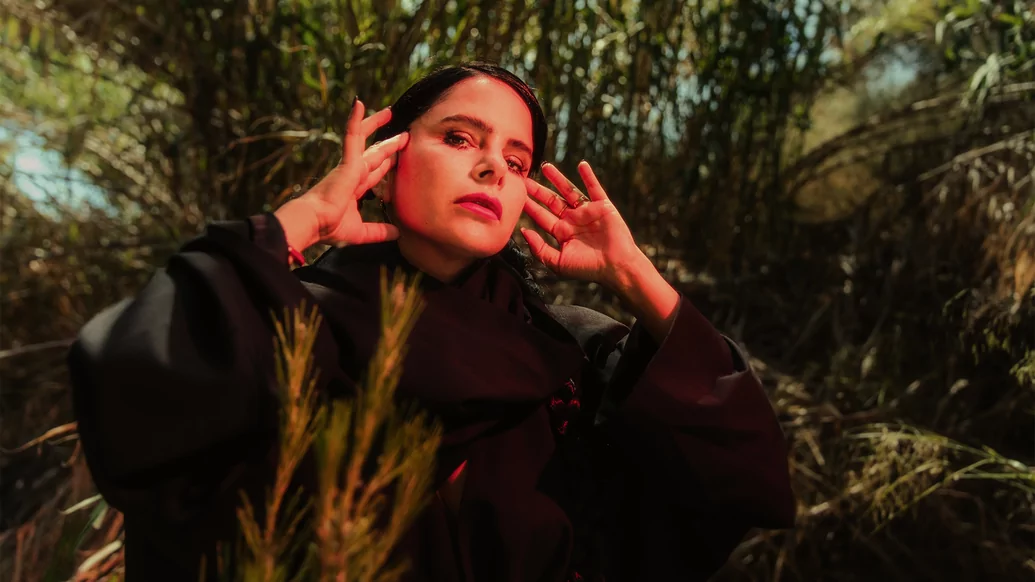
Despite the circumstances, the album, though coloured at times with melancholy, is a kaleidoscopically optimistic affair, with moments of ecstatic joy shining through her leftfield version of house music. Her mother is doing well since relocating to Berlin. “She's making friends and she’s doing her own things,” Kourtesis says.
She gives the credit to her mother’s neurosurgeon, Peter Vajkoczy; one of the album’s standout cuts, ‘Vajkoczy’, is named for the doctor, who took the case on when other neurosurgeons had given up. “He’s the best UFO that exists in this world,” she says of Vajkoczy. “He’s from another planet. His devotion, the way that he operates... he’s not human, he’s like an angel. I think it’s because he lost his own parents to cancer, and he made it a life goal to extend the life of parents of children, or of children of parents, because he wants to give this force of love a longer time for everyone. It makes me wonder, what kind of human is this person? He’s a UFO, he’s not of this earth, and I will find the science to prove it.” No need for science — the sparkling, euphoric track is proof enough.
Kourtesis, who’s a great DJ and rambunctious live performer — she’s a fan of stage-diving — moved from Peru to Germany when she was still a teenager, and describes herself as having “a Latin American heart and a German motor.” She has fond memories of Peru — “There were beautiful moments, on the sea,” she recalls — but life was far from perfect. Her father and mother, both activists, had to deal with the corrupt repressive government of Alberto Fujimori. “We were always feeling threatened,” she says. “I could feel that my family was always worried.”
There were personal difficulties as well. Her parents divorced. At one point, as a teenager, she was forced into conversion therapy. “I was in love with both women and men,” Kourtesis says. “Somebody caught me kissing a girl, and they told somebody from my school, and they made a big thing about it. People were not allowed to sit next to me. I was bullied. They made me talk to the priests and to the psychiatrist, and they talked to my parents about taking the demon out of me. They didn’t listen, luckily. I think it was very horrible what they did to teenage Sofia at the time, but now I can understand that they were not educated about the subject.”
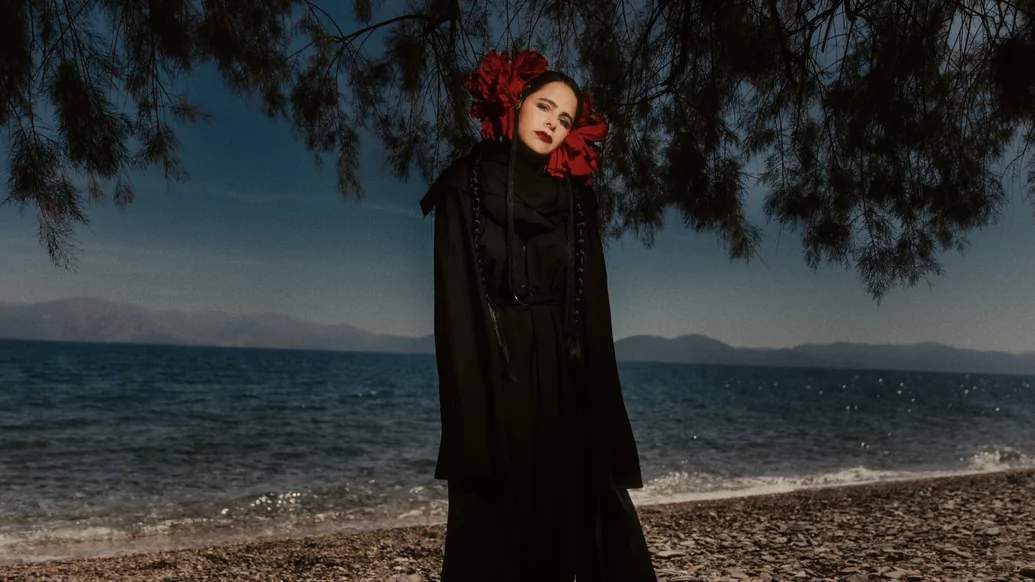
“I had been asking myself, ‘Am I Tresor enough? Am I Latin enough?’ Finally, I said, ‘No, I’m just going to do something very honest.’”
She escaped to Germany for school, and other than the time spent in Lima caring for her mother, it’s been her home ever since. Kourtesis’ life in music began in fits and starts. In her early 20s, while living in Hamburg, she spent time in a German-language hip-hop outfit. (“I was a very bad rapper,” she admits.) In 2014, she released the misty ‘Las Magnolias’, a collaboration with then-boyfriend Gold Panda, quickly followed by the ‘This Is It’ EP.
But the first step into her current run wasn’t until 2018, by means of a stealth release buried among the gems on the ‘Studio Barnhus Volym 1’ compilation. ‘WinWin San', with vocal loops swimming through cotton cloud filigree and anchored by a gentle house rhythm, was the standout track on a comp brimming with great tunes.
2019’s ‘Sofia Kourtesis’ EP received rapturous reviews, but she considers a pandemic-era epiphany to be a turning point. “I had been asking myself,” she says, “‘Am I Tresor enough? Am I Latin enough?’ Finally, I said, ‘No, I’m just going to do something very honest’. It was then that I decided that I don’t have to sound like this artist or that artist. And that’s when people really began to listen.”
‘Madres’ is her most honest work yet, and is one of the most moving house albums you’re likely to encounter. When the album’s bubbling title track was released as a single earlier this year, Kourtesis declared that the album was dedicated to mothers of all sorts, everywhere — but her own mother comes first and foremost.
“Even if sometimes my duty as a caregiver to my mom is a lot of work, it brings me so much joy and happiness,” she says. “She’s able to listen to the album that I wrote for her, and I find so, so much satisfaction in giving her back the love that she gave to me. For me, it’s not happiness having a nice car or having my Gucci. Happiness for me is having my mom listening to the album, or hanging out with my friends, or talking to you, or playing music. For me, this is sublime.”
At times, Kourtesis seems dazed by the reception to her art. “It all feels very surreal and dreamy,” she says. She’s speaking of the arc that her career and life have taken — but she could just as easily be alluding to ‘Madres’, an album graced with a sound that could set a thousand reveries spinning into motion.
